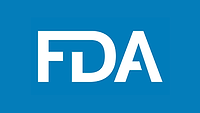Staying One Step Ahead of Food Fraudsters

Do your supply chain partners’ practices put your company’s hard-earned brand and reputation at risk? That is an inquiry prudent food companies continually assess. The strength and transparency of a company’s supply chain typically is a substantial hurdle on the path to success. The failure to adequately take stock of supply partners—and their partners—could result in tarnished reputations, loss of market share or worse.
The recent horse meat scandal in Europe is a stark reminder of that lesson. As food fraud scandals go, it could have been worse. The fraudsters did not cause widespread foodborne illness—although, apparently, many stomachs were turned. Rather, they enraged consumers and caused a firestorm of social media brand bashing. Numerous companies were ensnared in the resulting scandal, causing losses in the millions and tarnished brands. Their misconduct also gave rise to bewildered and angry consumers demanding to know how such a swindle could happen. The answer to the cause of their outrage appears to be straightforward. Companies did not evaluate their supply partners, and their supply partners’ partners, on a sufficiently routinized or adequate basis.
Meaningful supply partner assessment is not easy, nor is it a burden unique to food companies with limited resources or that do not have personnel dedicated to managing supply chains. Large companies with sophisticated food safety programs can fall prey to the practices of unscrupulous supply partners that cut corners and ignore food safety and other consumer and societal concerns. For example, on August 19, 2015, three California law firms filed a class action lawsuit in the federal court in San Francisco claiming that Costco is engaging in deceptive practices and demanding that Costco and its Thai supply partner cease selling shrimp sourced from Thailand unless Costco indicates on packages of the shrimp that the shrimp are a product of forced labor and slavery. Underlying that claim and demand are allegations of deplorable abuse and working conditions at one or more sub-suppliers. Costco has a published Code of Conduct which prohibits human rights abuses in its supply chain, and demands that its suppliers contractually agree to abide by the Code and to ensure that their suppliers also comply. Costco also utilizes detailed food safety plans that require suppliers to employ their exacting safety standards. Nevertheless, Costco finds itself ensnared in a web of alleged wrongdoing, with the lawsuit and its attendant allegations widely reported in the media. To be clear, the lawsuit is in its nascent stage, and ultimately the charges against and demands of Costco may prove to be false. But even if the allegations prove false, the Costco brand nevertheless may suffer lasting harm.
The lesson? Food companies must know with whom they are dealing and with whom their direct supply partners deal. Good business practices require this. So too will the Food Safety Modernization Act (FSMA). As Michael Taylor, the U.S. Food and Drug Administration (FDA) deputy commissioner in charge of FSMA implementation, noted when FSMA was enacted in 2011, food companies should “Think of [FSMA] as supply chain management written into law.”
FDA is scheduled to roll out over the next few months the final FSMA regulations that are the foundation of FSMA. At their base, those regulations promote and require proactive management of internal food company operations and external supply chains relationships to prevent food products that can sicken people from entering the marketplace. In other words, the regulations mirror good business practices—and require food companies at each step in the supply chain to take a hard look at their internal operations and external relationships, domestic and foreign.
A primary reason for the forthcoming changes in food law is the increasingly global and complex food supply chain. Products and ingredients in the U.S. food supply now come from every party of the world. In light of those complexities, companies that grow, process, transport, store and sell food products and the FDA alike face unprecedented challenges to assure that food products both are safe and comprise only the ingredients advertised.
Faced with those challenges, what’s the answer? In short:
• Preparation for and compliance with FSMA—including study of which regulations apply to your company’s internal operations and external supply partners;
• Transparency in the food safety measures your company and its external partners employ to keep the food supply safe; and
• Vigilant management and oversight of internal operations and external relations
Of course, each undertaking is itself complex and multi-faceted, the exact steps for which will depend on the nature and complexity of the food product and the internal operations and supply relationships needed to produce and market that product. But with proper planning, careful contracting and ongoing oversight, a company can take steps to reduce the likelihood that it will find its name in the caption of the next lawsuit or the headlines of tomorrow’s news.
John T. Shapiro, Esq., is a partner and Meghan E. Tepas, Esq., is an associate at Freeborn & Peters LLP (Chicago) and are members of Freeborn’s Food Industry Team.
Looking for a reprint of this article?
From high-res PDFs to custom plaques, order your copy today!







